Explore fiction and nonfiction examples with your students using this digital game for Kindergarten and 1st grade students.
Explore Fiction and Nonfiction Examples
When choosing a book to explore from the library shelves, could your students tell you whether the book they have chosen is a fiction or nonfiction book? Fiction and nonfiction books serve very different reading purposes, so it is important that our students understand the difference between the two!
This digital resource has been designed by our experienced teacher team to help your students identify fiction and nonfiction examples. Each slide contains two pictures, and each picture has a sentence underneath it. The students must select either the fiction or the nonfiction example, depending on the instructions.
For example:
Choose the nonfiction book.
Choice 1: Photograph of a dog with the caption, “Dogs are loyal animals.”
Choice 2: Illustration of a dog catching a frisbee in his mouth with the sentence, “I love frisbee!” said Fido.
In this case, Choice 1 is the correct response.
If students choose the incorrect answer, they are directed to a slide that reminds them of the purpose of the genre they are looking for, e.g. Fiction tells a story, nonfiction teaches about a topic. If the student chooses the correct answer, they are directed to a slide that reinforces why the choice they have made is correct. The resource includes 10 fiction and nonfiction examples in total.
This resource downloads in Google Slides format. Simply project the resource onto your screen and work through the slides as a class for a paperless lesson on the differences between fiction and nonfiction!
Delve Deeper Into These Fiction and Nonfiction Examples
While this resource makes a great warm-up or review activity on the differences between fiction and nonfiction texts, it can also be used to explore the text features of fiction and nonfiction texts in greater detail.
If you have a little more time on your hands, you could definitely build a whole lesson on fiction and nonfiction examples using this digital resource. Here’s a suggestion on how you might go about this from one of our experienced teachers.
- Display one of the slides from the resource. Have your students indicate their choice of answer. This could be done in a variety of ways, such as standing up/sitting down, moving to a particular side of the classroom or writing their choice on a dry erase board.
- Explore the choice further by asking clarifying questions. These could include:
- What makes you think that this example is fiction/nonfiction?
- What type of fiction book/nonfiction book do you think this example has been taken from?
- Would you like to read this book? Why or why not?
- Once you have finished the examples, make a class example together. Students could suggest topics, then vote on the most popular to use to create a fiction and nonfiction example in the same style as those in the presentation. More-capable students may like to complete this task independently.
Download To Explore Fiction and Nonfiction Examples
Use the Download button above to access the Google Slides version of this resource. (Note: You will be prompted to make a copy of the Google Slides template before accessing it.)
Be sure to operate the presentation in Slideshow mode to enable the interactive features.
Kendall Britnell, a teacher in Colorado and a Teach Starter collaborator, contributed to this resource.
More Resources on Fiction and Nonfiction Text Features
Click below for a peek at Teach Starter’s extensive range of curriculum-aligned, teacher-created resources addressing fiction and nonfiction text features.
[resource:65625] [resource:2657098] [resource:5030361]
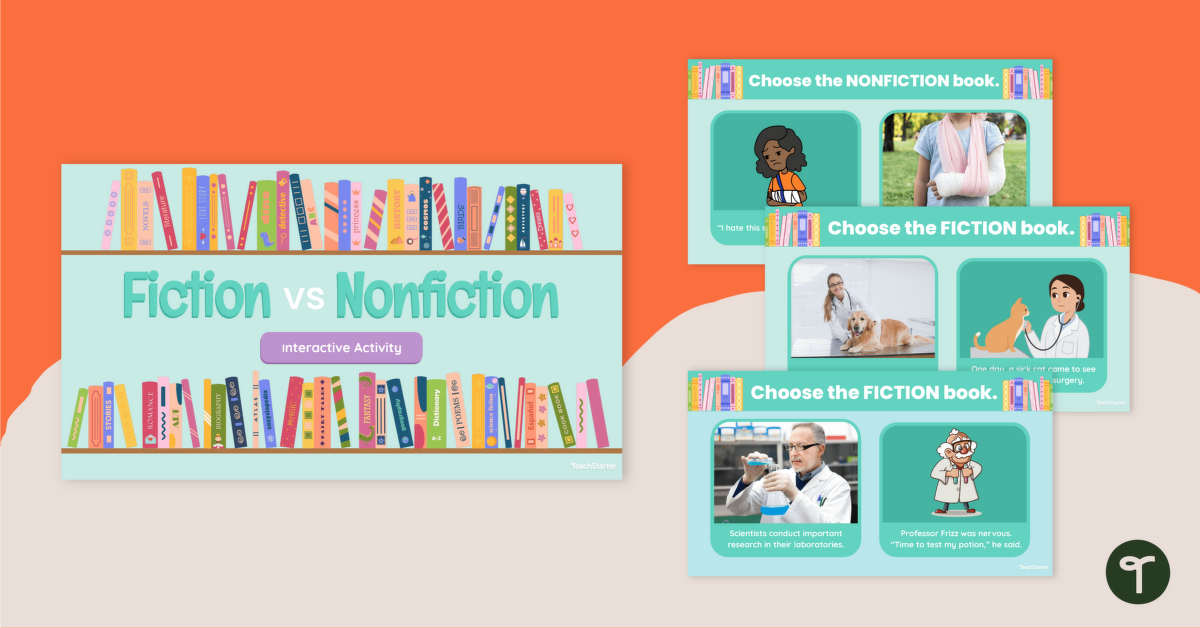

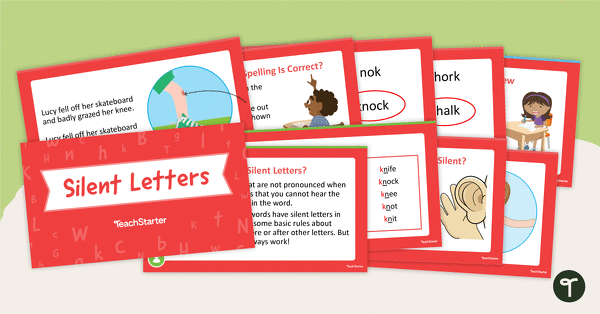
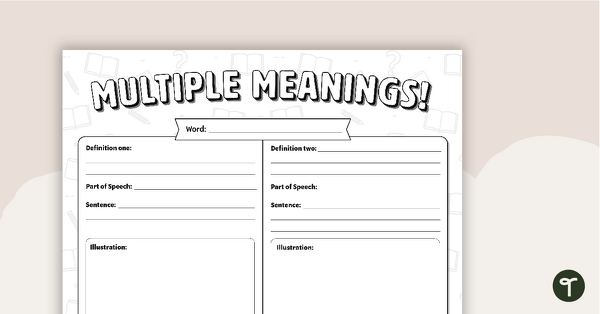
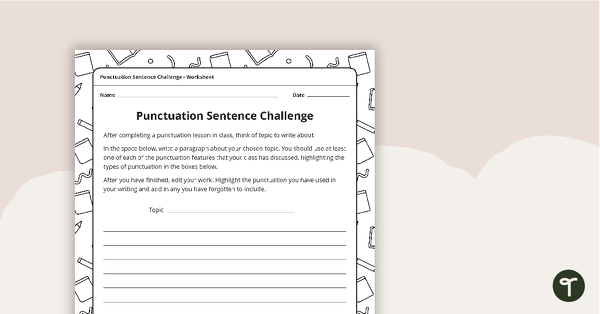
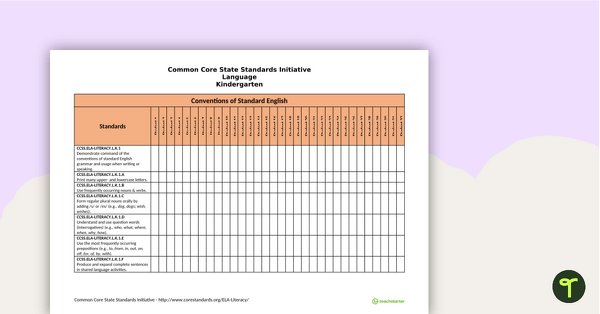
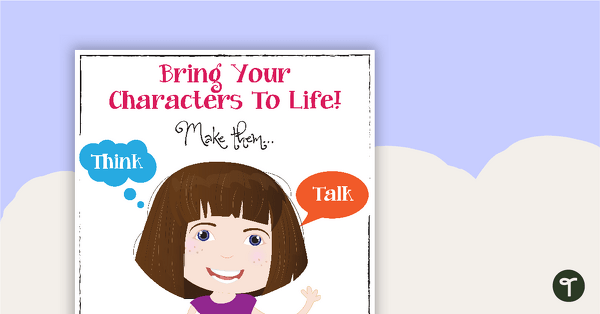
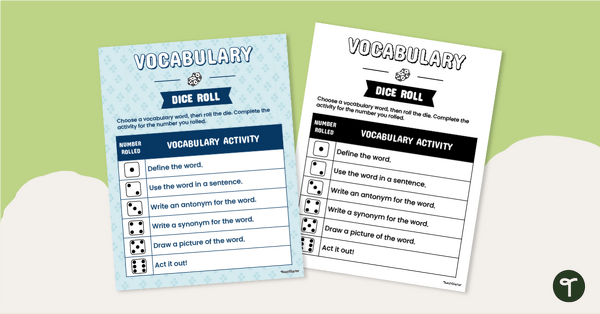
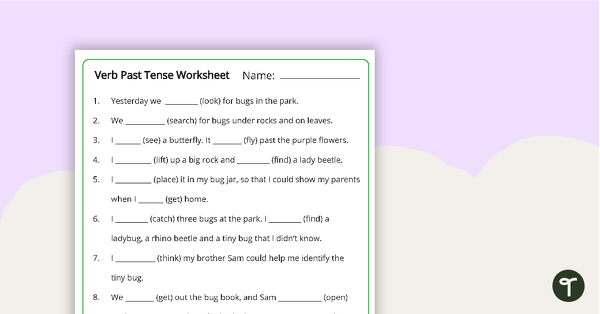
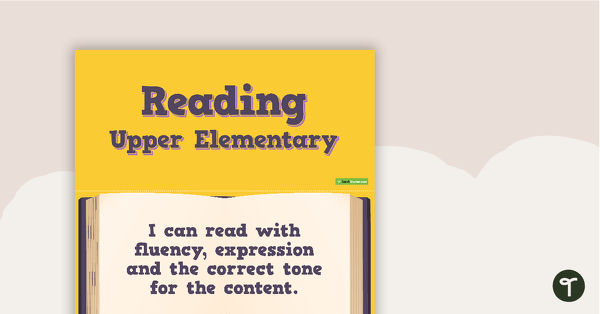
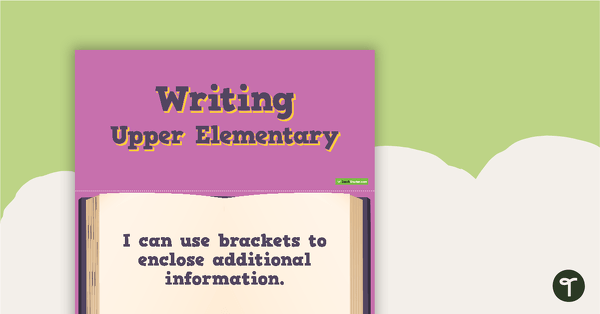
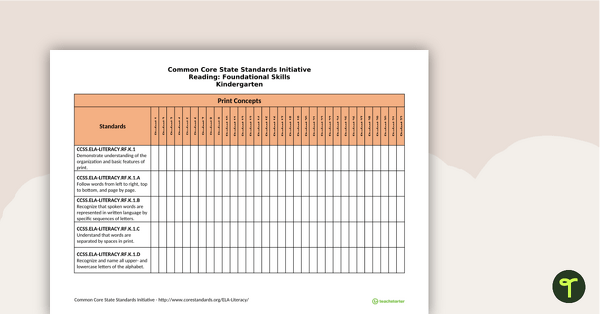
0 Comments
Write a review to help other teachers and parents like yourself. If you'd like to request a change to this resource, or report an error, select the corresponding tab above.